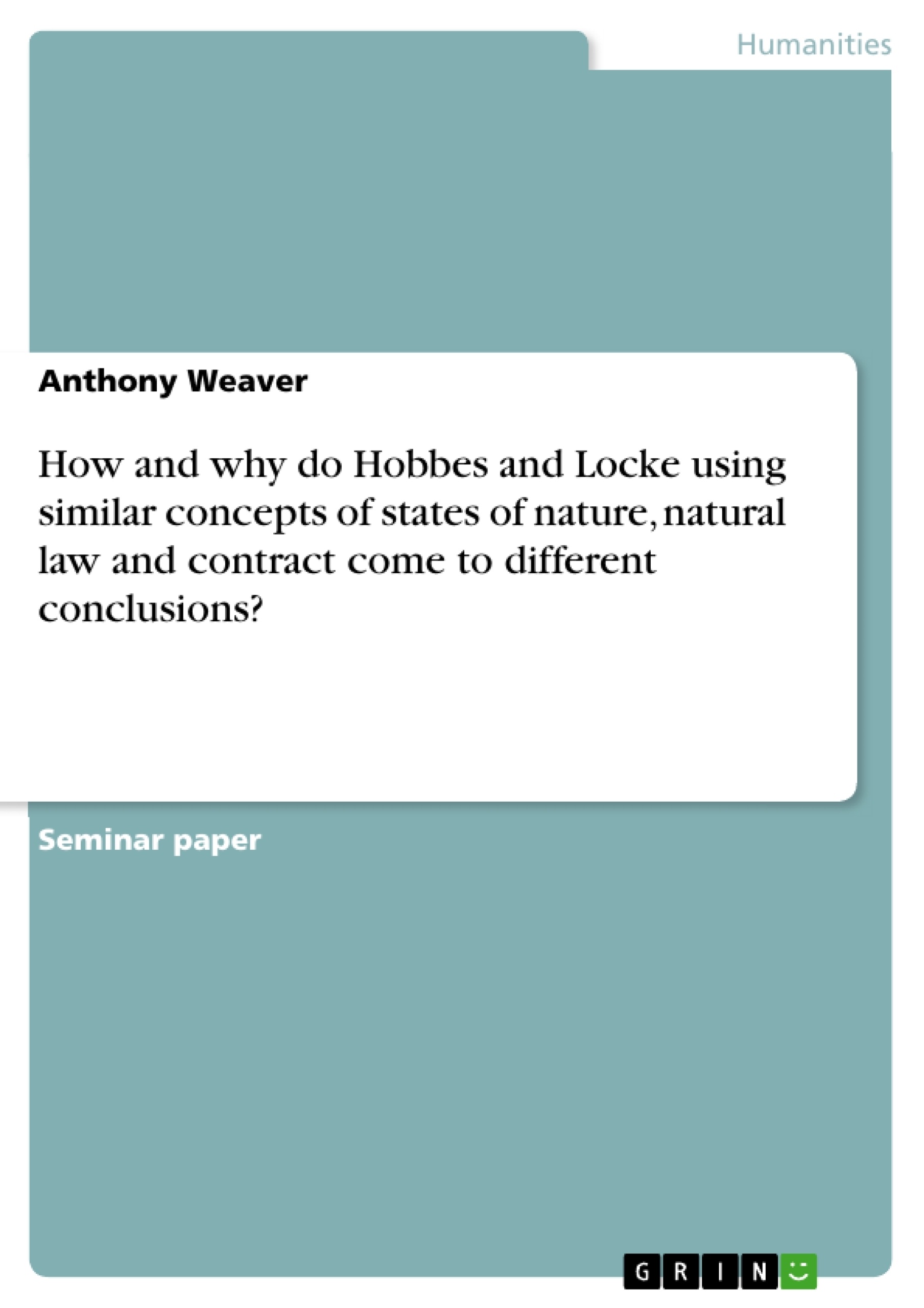The fundamental differences between the political theories of Hobbes and Locke.
Both Thomas Hobbes (1588-1679) in his Leviathan and Locke (1623-1704), in his Two Treatises of Government, were among the very earliest historical political theorists to work out a theory of political obligation. For both thinkers, the theory of pollical obligation attempts to justify our submission to political authority, on both moral and prudential grounds. I will argue that the similarities between Hobbes and Locke, respecting the State of Nature, Natural Law and Social Contract, arise because both were seeking a non-theological, rational-legal foundation for political or state authority. Second, I will explain how the fundamental differences regarding the aforementioned concepts, are of greater significance, and explain how they come to radically different conclusions regarding the State which emerges from the state of nature.
Table of Contents
- How and Why Do Hobbes and Locke Using Similar Concepts of States of Nature, Natural Law and Contract Come to Different Conclusions?
- Hobbes and Locke's State of Nature
- Hobbes and Locke's Social Contract
- Hobbes and Locke's Theories of Human Nature
- Hobbes and Locke's Different Theories of Law
- Hobbes and Locke's Theories of the State
- Conclusion
Objectives and Key Themes
This text explores the similarities and differences between Hobbes and Locke's theories of political obligation, focusing on their conceptions of the state of nature, natural law, and the social contract. It investigates how their contrasting perspectives on these concepts lead to radically different conclusions regarding the nature and role of the state.
- The concept of political obligation and its justification
- The state of nature as an analytical device
- Natural law as a foundation for political authority
- The social contract and its implications for sovereignty
- Theories of human nature and their impact on political thought
Chapter Summaries
The first section introduces the central question of the text: how do Hobbes and Locke, despite employing similar concepts, arrive at different conclusions about political obligation? It suggests that their shared aim of establishing a secular basis for political authority and their rejection of divine right theories form the common ground for their exploration. The second section delves into Hobbes and Locke's respective conceptions of the state of nature, emphasizing their shared belief in fundamental human freedom and equality in this hypothetical pre-political condition. The text highlights their agreement on the existence of natural law as a guide for human action, with both acknowledging its role in leading individuals to form political societies. The third section examines their theories of the social contract, emphasizing the role of consent and the law of nature in justifying political obligation. The fourth section delves into the contrasting theories of human nature held by Hobbes and Locke. Hobbes, emphasizing the relentless pursuit of power and self-preservation, portrays the state of nature as a "war of all against all," while Locke envisions a state of nature marked by social cooperation and mutual trust. The fifth section analyzes the differing conceptions of law held by Hobbes and Locke. Hobbes emphasizes the importance of positive law enacted by the sovereign, viewing natural law as essentially utilitarian and lacking true legal force. Locke, in contrast, sees natural law as a morally binding principle, governing both the state of nature and society. This section further explores their contrasting theories of sovereignty, with Hobbes advocating for an absolute, indivisible sovereign to prevent a return to the state of nature, while Locke argues for limited government based on the consent of the governed and the protection of natural rights.
Keywords
This text centers on the concepts of political obligation, state of nature, natural law, social contract, human nature, and sovereignty. It explores the contrasting perspectives of Hobbes and Locke on these issues, highlighting their differing views on the nature and role of the state. Further key concepts include the English Civil War, divine right theory, and the justification of political authority.
- Quote paper
- Anthony Weaver (Author), 1997, How and why do Hobbes and Locke using similar concepts of states of nature, natural law and contract come to different conclusions?, Munich, GRIN Verlag, https://www.grin.com/document/1502981



